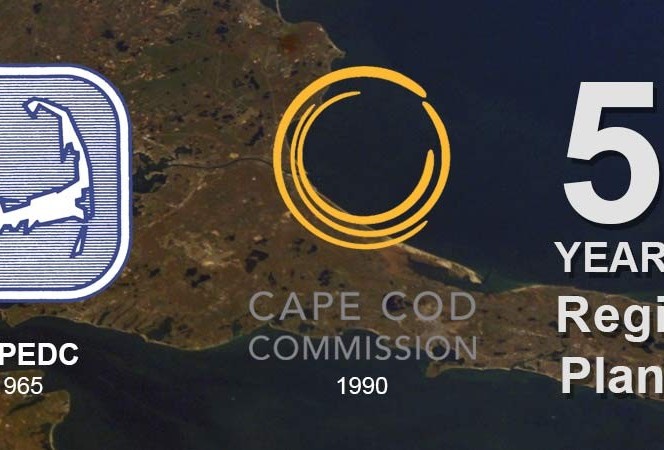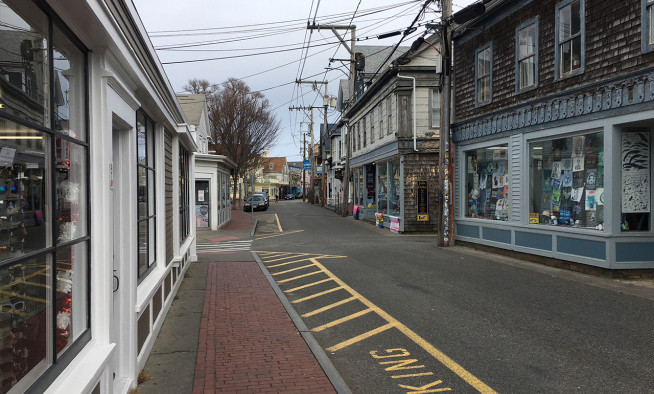BLOG: The Cape Cod Commission at 25

Regional planning on Cape Cod turns 50 this year, evenly split between the Cape Cod Planning and Economic Development Commission, started in 1965, and the Cape Cod Commission, started 25 years ago.
On March 27, 1990, voters in every Cape town went to the polls to decide whether the Act and the Commission’s funding source should be approved. It was close. Five towns voted it down, but 53 percent of Cape voters in the regional referendum said yes.
Reading through the letters to the editor, columns and editorials both for and against adoption of the Cape Cod Commission Act leading up to 1990 vote gives a fair sense of the hopes, fears and expectations for what it was to do.
Supporters stressed it would save Cape Cod from the rapacious development of the 1980s. Opponents saw it as a governmental overreach that would forever dampen the Cape’s economic vitality. Both agreed that if the other side succeeded, the Cape would never be the same.
The Commission represented an evolution of regional planning from the CCPEDC, gaining regulatory authority to review large-scale projects, both commercial and residential. This authority would be defined in a regularly updated Regional Policy Plan that was meant to protect towns from large projects whose effects extended beyond local jurisdictions and set the planning path to sustainable growth and economic development.
That was the promise of the Commission, as expressed in the words of the Act and those encouraging its passage. The Act’s heavy reliance on towns to implement its broader planning goals makes them partners in maintaining that promise, but the incentives for towns to accept that role have been too weak.
It was thought that towns would develop Local Comprehensive Plans to gain new authorities provided by the Act, such as imposition of impact fees and the ability to enter into development agreements.
That hasn’t proven to be the case.
There is nothing within the Commission Act that requires towns to develop LCPs, or plan land uses in particular ways. Many towns looked at LCP requirements in the Act and Regional Policy Plan and concluded the benefits were too few. Those that committed to LCPs drafted detailed narratives with hundreds of proposed actions and regulatory recommendations. It’s fair to say that while these were ultimately beneficial efforts, most of the zoning reform on Cape Cod in the last 25 years happened for reasons other than LCP implementation.
Growth incentive zones, or GIZs, were added to the Regional Policy Plan in 2005 as a way to jumpstart targeted zoning reforms in support of economic development. These locally-developed GIZ districts provide regulatory relief from Commission regulations based on area-wide thresholds. Put simply, they allow the Commission to step aside in favor of local decisions while protecting the broader interests of the Act.
The principle of easing the regulatory process that guided the recently-submitted Section 208 Plan Update and evident in GIZs represents the next evolution of the Regional Policy Plan and the Commission itself. We started the five-year update to the RPP in December. It’s required to be updated every five years for a reason. Things change and the RPP needs to anticipate and reflect these changes.
Bourne is not Truro. Truro is not Barnstable. Barnstable is not Chatham. Yet each is regulated by the same standards without regard to their differences. The RPP should be able to accommodate these differences with regionally consistent, but locally sensitive standards.
Similar to the Commission’s role in Growth Incentive Zones, a goal of this RPP update is to look for upfront planning and then get out of the way. If a local plan is consistent with the Regional Policy Plan, there should be no need for additional Commission review. There will remain areas where the Commission’s regional expertise and scope is needed, but those can be refined as technical assistance.
With many lessons learned along the way, the Cape Cod Commission has kept the promises made for its adoption 25 years ago. The promise for the next 25 is to keep learning, keep evolving and keeping a special place special.




